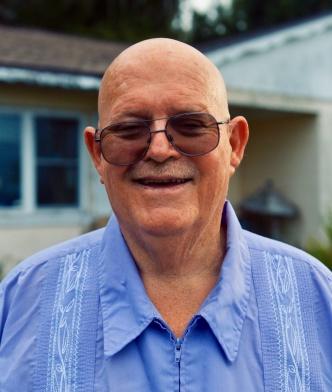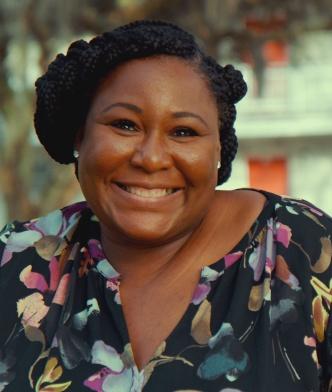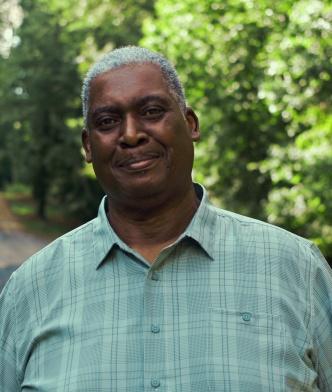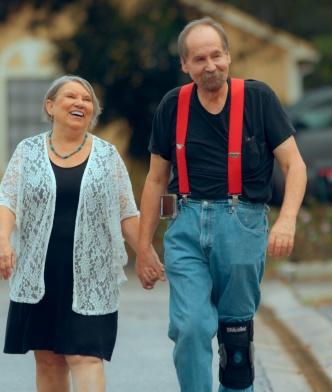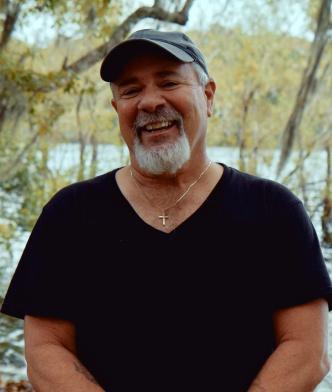The Importance of Gathering Evidence After a Personal Injury Accident
The Importance of Gathering Evidence After a Personal Injury Accident
Rating Overview
- The Fee Is Free Unless You Win®.
- America's Largest Injury Law Firm™
- Protecting Families Since 1988
- 20 Billion+ Won
- 1,000+ Lawyers Nationwide
Free Case Evaluation

The attorneys featured above are licensed in Florida. For a full list of attorneys in your state please visit our attorney page.
The Importance of Gathering Evidence After a Personal Injury Accident
Gathering evidence after a personal injury accident is the most important thing you can do besides getting medical care, which in itself is a form of evidence. Evidence is a crucial requirement to prove negligence and liability in any personal injury case. To successfully recover compensation for injuries and losses sustained in a personal injury accident, you, the plaintiff, must present convincing evidence to others (whether it be a jury or an insurance adjuster) that demonstrates the other party's negligence. Forms of evidence can include anything from medical bills to witness statements, but we'll go over a comprehensive list further on.
Beyond being a crucial aspect of proving negligence, evidence can be used to authenticate your degree of injuries and losses. For example, missed pay period documentation and records from your treating physician can validate lost income and the extent and cost of your injuries. This type of evidence is used by your personal injury lawyer to calculate the value of your damages so it can be presented to the other party.
The preservation of evidence is also incredibly important. When you don't act quickly after a personal injury accident, the wrongdoer could destroy or erase evidence or fix issues that led to the accident. That's how a personal injury lawyer could help immediately. We have ways to compel the individual or entity that injured you to preserve the evidence, even if that evidence will be used against them. Otherwise, they can face criminal legal consequences. If you've been injured by another party's negligent actions, Morgan and Morgan would like to evaluate your case to see if we can help you recover the compensation you deserve.
To get started, contact us today for a free case evaluation.
How it works
It's easy to get started.
The Fee Is Free™. Only pay if we win.
Results may vary depending on your particular facts and legal circumstances.
Step 1
Submit
your claimWith a free case evaluation, submitting your case is easy with Morgan & Morgan.
Step 2
We take
actionOur dedicated team gets to work investigating your claim.
Step 3
We fight
for youIf we take on the case, our team fights to get you the results you deserve.
FAQ
Get answers to commonly asked questions about our legal services and learn how we may assist you with your case.
How Can I Gather Evidence After a Personal Injury Accident?
We understand that gathering evidence may not be top of mind after you've been seriously injured, but it's critical that you do. Generally, the scene of the incident is the best place to start. For example, suppose you're in a car accident. In that case, one of the best methods to ensure the integrity of the scene is kept intact and the facts of the accidents are recorded correctly is to call the police. When the police respond, the officers will take control of the situation and document the facts they gather through interviews and surveillance of the scene in a police report.
Police reports can be vital pieces of evidence where the information concerning the accident is compiled into one summary document. A police report usually includes the following information, but agencies differ on the required formats:
- Identifying information of all parties involved, including full names, addresses, phone numbers, and, if applicable, insurance and registration.
- Identifying information of witnesses
- The date, time, and precise location of the incident
- An opinion concerning the cause of the accident
- Weather and environmental conditions, if applicable
- Citations or violations given
- If any arrests were made
- Photographs of the scene, including property damage, bodily injury, and location of evidence
- Descriptions of property damage
- Descriptions of bodily injuries
- Makes and models of vehicles, if applicable
- A diagram of the accident, including traffic signals, stop lights, crosswalks, etc.
- Responding officers identifying information, including names, badge numbers, and agencies
Keep in mind this is not a comprehensive list, and the details will differ depending on what kind of personal injury you suffered. In most states, calling the police after a car accident is mandatory, and you could get in a legal bind if you don't. Still, some personal injury accidents don't necessarily warrant police involvement, but if you're ever in doubt, it doesn't hurt to call the non-emergency line and ask for a police officer's presence if you feel threatened in any way.
If getting the police involved doesn't make sense for your personal injury accident, you can still take steps to gather your own evidence, much like police personnel would. Here are some examples:
Take photographs - It's an old saying, but a picture is worth a thousand words. When civil actions are concerned, pictures can be vital pieces of evidence because it is challenging to dispute visual documentation. For example, if you slipped and fell because of a broken handrail in your apartment complex, you would want to have a picture of the defect before a maintenance specialist could fix it. Take pictures at different angles to capture the full essence of the scene, if possible. Should your accident be serious enough that you were not able to get pictures directly afterward, ask a friend if they could visit the location at the same time of day to capture the conditions.
In current times, getting video evidence is easier than ever before, which can be very powerful. For instance, if you're in an altercation with a neighbor and have your phone handy, it's important to press record. We've seen many examples of people lying outright about the facts of the case against them, only to be quickly disapproved once we reveal video footage. Furthermore, once a wrongdoer is proven to be a liar, all of their testimony is suspect, which can significantly help your case.
Should your accident have taken place on private property, and they won't allow you to access the scene of the accident, be sure to note the date, time, and reason stated for the denial.
Witness statements - You might be hesitant to get others involved. Still, witness contact information is indispensable to your personal injury lawyer. Your Morgan and Morgan attorney will interview them concerning the incident, and they may be called upon later should your case go to trial. Again, suppose your condition after the accident wouldn't allow you to take the time to get witness contact information. In that case, you or your personal injury lawyer could return to the scene to investigate whether someone might have witnessed the accident.
For example, we could talk to area businesses to see if an employee might have seen what had happened. If it's a residential area, we could speak to the homeowners in the surrounding area. In fact, this kind of surveillance is often part of our investigatory procedures. We leave no stone unturned when it comes to ensuring Morgan and Morgan's clients are successful in their pursuit of justice.
Medical records - To be successful in the majority of personal injury cases, you have to have suffered a physical injury. Of course, this doesn't apply to personal injury cases that involve things like wage theft or defamation of character. Still, medical documentation is a requirement in many other types of claims. To get medical records, obviously, you have to seek medical attention, which we highly advise, both for your health and for the validity of your case. Medical records establish that an injury occurred, usually outline the severity, and contain information about the prognosis of your condition. Medical records should also include the costs, diagnoses, and follow-up instructions.
Getting physical copies of medical records can be time-consuming and more challenging than you think, though. Here is also where a personal injury lawyer can be helpful. While you're recovering, your lawyer (with your permission) can access this information, so they can get a complete sense of your condition and strengthen your case.
Personal chronicle - You may not realize it, but you can provide valuable evidence through your personal experience. Once you've decided to pursue legal action, start writing down every detail you remember about the accident. For example, jot down what you were doing right before the accident, what you were wearing, where you were going, how fast you were driving, what the weather was like, etc.
Every detail, no matter how small, has the potential to make a difference. Likewise, take down your personal narrative of everything that has happened post-accident. For instance, how you feel each day, how your life has changed, what events or activities you've missed, including involvement with and taking care of your family, etc. These details can be very compelling to a jury.
Likewise, if you start writing down everything you can think of now, it will be easier to recall at a later date when questions come up. Some personal injury cases may take years to conclude, especially if you've been seriously injured. While Morgan and Morgan excel at negotiating successfully with insurance companies, a court trial is the only way to get a favorable conclusion in some cases.
However, suppose that is the only way to resolve your case. In that case, you can be assured that your personal injury will be prepared to go the distance. Many personal injury lawyers will leave money on the table in order to get a quick resolution, whether it's in their client's best interest or not. That's not how Morgan and Morgan operate. All of our personal injury lawyers are ready and willing to take a case to trial if that's how we can make a meaningful difference in the lives of our clients and their families.
What Kind of Compensation Could I Get for a Personal Injury Accident?
One of our most frequently asked questions is the amount of compensation to expect for a personal injury case. However, every case is unique. While we could give you an average based on the type of case, the number wouldn't be very meaningful without knowing the details of your accident. Compensation usually depends on a few essential factors, such as the severity of your injuries and losses, insurance policy limits, where the accident took place, and the circumstances of the accident. Generally, you can expect to get compensated for the following damages:
- Medical bills, present and future, related to the accident
- Lost income
- Lost income earning capacity
- Pain and suffering
- Loss of enjoyment of life
Some of these items come with a price tag, like medical bills, while others have to be calculated based on our experience. For example, we understand what is a reasonable ask for pain and suffering based on what we learn about your injuries and how they affect your quality of life. While it may seem insensitive to put a dollar sign on pain and suffering, especially if your injuries are severe, it's the only method the civil justice system has to make injured parties "whole." However, you can be assured that through our extensive experience with thousands and thousands of personal injury cases, we know how to ensure you receive the maximum amount possible.
How Much Does It Cost to Work With Morgan and Morgan?
One of the biggest fears people have about working with a personal injury lawyer is the cost. We understand legal fees can be intimidating. Still, we don't work on an hourly basis. Instead, we take a percentage of your award only if we're successful. We don't get paid if we don't recover compensation for you. It's that simple. That means it doesn't matter how many hours we work on your case. We only get an agreed-upon percentage once your case is successfully resolved.
There really isn't any risk for you. Plus, we don't cost any more than other lesser-known law firms, even though we have one of the largest law firms in the nation with an impeccable reputation for winning.
You can put the power of Morgan and Morgan to work for you with a free case evaluation. Once we've reviewed the facts of your case and agree to represent you, we can swing into action and take the burden of gathering evidence and proving negligence off your shoulders. However, don't wait too long to make a decision. Civil actions must meet deadlines to retain the ability to get compensation, so don't hesitate to reach out today.
Get started now with a free case evaluation.

